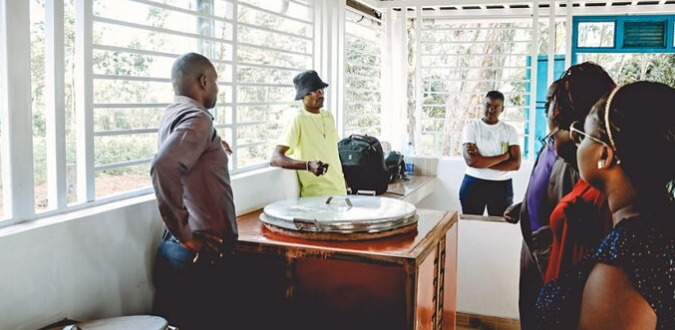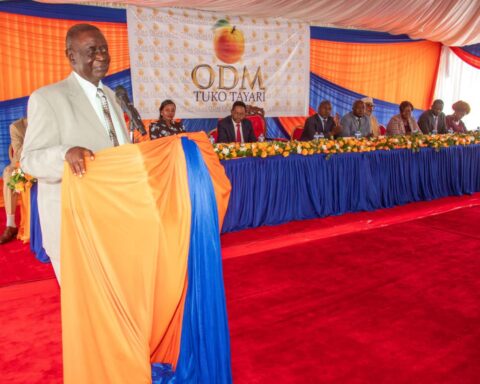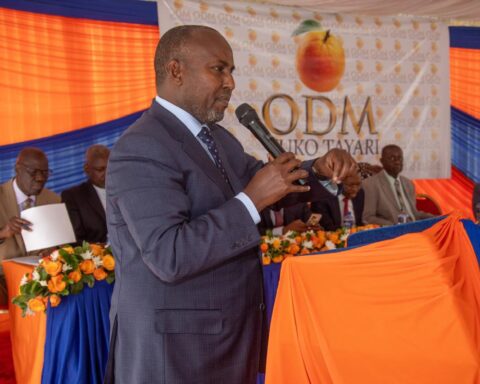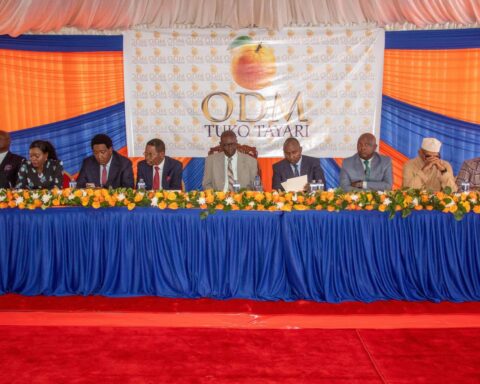Agriculture and Livestock Development Cabinet Secretary Mutahi Kagwe has called for treason charges against individuals selling counterfeit seeds, terming their actions a direct threat to Kenya’s national food security.
Speaking in Nyeri on Wednesday, November 5, during the launch of modern Kenya Plant Health Inspectorate Service (KEPHIS) facilities, Kagwe condemned the sale of fake seeds and uncertified nursery materials, urging Parliament to enact stringent laws against the vice.
“Anyone selling fake seeds is deliberately sabotaging the country. You are risking a national food crisis,” Kagwe stated. “That is economic sabotage, and it should be treated as treason. We will immediately arrest those involved.”
The CS’s bold remarks come amid growing concern over the infiltration of counterfeit agricultural inputs in the Kenyan market, a challenge that continues to undermine the productivity and livelihoods of smallholder farmers. Kagwe announced that his ministry would collaborate with law enforcement agencies to launch a national crackdown on the sale of fake seeds and uncertified planting materials.
He also urged farmers to purchase seeds and seedlings only from certified suppliers, emphasizing that counterfeit products derail government efforts to achieve food sufficiency. “We cannot achieve food security if farmers continue to fall prey to unscrupulous dealers,” he noted.
Under Kenyan law, treason is one of the gravest crimes, outlined in Articles 24 and 25 of the Penal Code (Cap 63). It encompasses acts such as levying war against the Republic, attempting to harm the President, aiding enemies of the state, or plotting to overthrow the government by force. Conviction for treason carries the death penalty, making it the most serious offence under Kenyan law.
The last individuals executed for treason were Hezekiah Ochuka and Pancras Oteyo Okumu following the 1982 coup attempt. Since then, while the term has been invoked in political and security discourse, no successful treason prosecutions have occurred in recent decades.
Kagwe further issued stern warnings to criminals targeting agricultural farms, including those felling coffee trees and destroying avocado and macadamia plantations. “Even as you steal, use your brains. What will you steal tomorrow after cutting down the coffee trees? The long arm of the law will catch up with you,” he warned.
To combat such crimes, the CS revealed plans to re-establish an agricultural police unit dedicated to protecting farmers and agricultural investments. He also cautioned coffee hawkers who buy cherry illegally from farmers, often in exchange for alcohol, describing the practice as exploitative and damaging to formal markets.
Kagwe’s tough stance signals a renewed government effort to safeguard Kenya’s agricultural sector, the backbone of the economy, from threats posed by counterfeit products, theft, and market exploitation.









